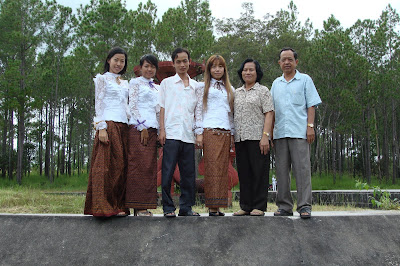International Client Couselling Comepetition



Inte rnati onal Bar News SEPTEMBER 2007 33
A competitive
approach to client counselling
Steven Michael Austermiller A competition inspired by the 1960s initiative of a Los Angeles lawyer – and supported by the IBA – has stood the test of time.
It now attracts students from all over the world, who learn the sort of skills not generally taught in their law schools An attractive young woman has a meeting with her lawyers and has a sad story to tell. She has been misled by her boyfriend. After meeting him online and carrying on a long-distance romance, she agreed to his request to move to his country and married him. But after quitting her job and moving, she learned that he was already married. She asks her lawyers, through teary eyes, what should she do? Does she have to return the engagement ring? Does she have a cause of action against her boyfriend? Can she sue the online operator? Her boyfriend is separated and promises to get divorced soon. If she decides to stay in his country and try to work things out, how long would she have to wait to get married? The lawyers listen and provide some preliminary advice. They appear sympathetic. They are very sorry for her situation, but, they add, she has many options. After she leaves, they continue to discuss what actions they could take on her behalf. Then, they stand up, bow, and the audience applauds. The judges then fill in their score cards.
Many lawyers would not consider client counselling a skill that is subject to competitive scoring. And yet, that is exactly what happened at an April 2007 gathering of legal professionals and students in Sydney, Australia. The
University of Sydney Law Extension Committee hosted the International Client Counseling Competition’s (ICCC) final rounds involving law student teams from around the world. The ICCC is the outcome of a pioneering initiative in the 1960s by Los Angeles lawyer and law professor Louis M Brown1 to address the failure of legal education to include the practical legal skills of interviewing and advising clients. The IBA became affiliated with the ICCC in 1993. The IBA provides a cash prize and its charitable foundation and trust have provided annual financial support to the ICCC. The IBA also sends a local representative to the ICCC finals and promotes the competition to its members. The guiding philosophy of the competition, with its emphasis on understanding the needs of clients, informing them of all available options and especially non-litigious solutions, has stood the test of time and become increasingly relevant.
The ICCC is divided into two stages. First, the participating countries organise national client counselling competitions, the format of which simulates a law office where two lawyers interview a client for 35 minutes and, then, when the client leaves, reflect on the process and outcomes of the interview. This occurs before a panel of three judges, typically practising and academic lawyers. Interviews are evaluated on several specified criteria.
Each country funds its own domestic client counselling competition. In the second stage, each participating country sends one team and their faculty adviser, usually the winner of its national competition, to compete at the international rounds.
Sydney competition
The 2007 international rounds took place in Sydney on 10-13 April 2007. There, 16 teams competed: Australia, Canada, England and Wales, Finland, Hong Kong, India, Malaysia, Namibia, New Zealand, Northern Ireland, Republic of Ireland, Scotland, Sri Lanka, Tatarstan (Russia), Ukraine and the United States. For most teams, ICCC 2007 was the culmination of exhaustive rounds of competition. Some, such as Tatarstan and Finland, came from competitions at different stages of development, representing new or recently participating nations. Each team participated in preliminary rounds on the first two days and six teams were chosen as semi-finalists for the last day. On the afternoon of that last day, the two final teams competed in front of the international assembly for the top honours. The final round started with a memo to each of the two student teams of lawyers: One week ago, Daniel(le) Sanders made an appointment to meet with you. (S)he said (s)he had some questions having to do with an online ‘match-making’ service, Marry Me International, and divorce in this country. I told Daniel(le) that you would be glad to answer his/her questions. The ‘client’ was a local actor who played the role well. She was given a three-page confidential profile that told her story as was illustratedabove.
The winning team was Ireland, followed by New Zealand. The six teams that reached the semi-finals were (in no particular order): Malaysia; Ireland; India; Scotland; United
States; and New Zealand. Last year, New Zealand won. The Irish victory was all the
more impressive since the Irish law school represented was newly established. After the final round, there was a formal award dinner at which the IBA Representative, Fred Chilton, a partner of Allens Arthur Robinson, attended and presented the IBA
prize to the winning team. Law students learn important skills that are
not generally taught in law schools. Some of those skills include issue-spotting, listening, interpersonal communications, attorney sympathy/empathy, non-legal or non-litigation solutions and general problem-solving skills. These skills are crucial for attorneys who seek to represent real people with real problems. They can make the difference between a good and bad outcome, much more so than narrowly focusing on a simple pre-defined legal question. Background on the ICCC The ICCC is a loose onfederation of dedicated attorneys and educators from countries around the world. The ICCC executive committee board is headed by Chair Forrest S Mosten and consists of around 20 country representatives. Mosten is an American attorney involved in
ADR, legal education and other initiatives. The board meets annually during the competition. Each country representative assists in coordinating his or her country’s national competition rounds and often chairs a local organising committee. The ICCC has an endowment and funds most of its operations out of interest from the principal. However this year, its costs exceeded the available interest. Most of the ICCC costs go towards assisting the travel of competitors and organising the international competition. The ICCC also relies on the host institution to cover many costs, such as facilities, administration and some social events. These funds are provided
by the institution or by local sponsors. Each participating country is obligated to
organise and fund its own national competition, as well as cover the costs of sending its team to the international competition. There is no permanent ICCC secretariat and no ICCC employees. The entire organisation is kept running because of the tireless pro bono efforts The 2007 ICCC student participants In the finals, the New Zealand team interviews ‘Danielle Sanders’ in front of the judges The 2007 ICCC Tartarstan (Russia) team
The 2007 ICCC USA team Inte rnati onal Bar News SEPTEMBER 2007 35 F E AT U R E A R T I C L E. IBA Officers 2007-2008 President Fernando Pombo Gomez-Acebo & Pombo, Spain
Vice-President Fernando Peláez-Pier Hoet Peláez Castillo & Duque, Venezuela
Secretary-General Akira Kawamura Anderson Mo¯ ri & Tomotsune, Japan Treasurer
Sylvia Khatcherian Morgan Stanley, USA Honorary Life President George C Seward Seward & Kissel LLP, USA DIVISION CHAIRS Legal Practice Division David W Rivkin Debevoise & Plimpton, USA Public & Professional Interest Division Martin Šolc Kocián Šolc alaštik, Czech Republic HUMAN RIGHTS INSTITUTE CO-CHAIRS Emilio J Cárdenas Argentina
Justice Richard Goldstone South Africa IBA Executive Director Mark Ellis EDITORIAL AND DESIGN Managing Editor Kath Farrell editor@int-bar.org Editor Emma Reitano Editor Laura Shipway Assistant Editor Tom Maguire Publications Administrator Natalie Jackman Head of Production and Design Tim Licence Production Manager Brian Cox Creative rtworker Penny Newton SUBSCRIPTIONS Free to members of the International Bar association Subscriptions for non-members:
£99/$160 (full year)
£20/$36 (single issue)
Please order from the International Bar Association at subscriptions@int-bar.org
ADVERTISING Head of Sponsorship and Advertising Andrew Webster-Dunn dvertising@int-bar.org Printed in Scotland by Highland Printers, Inverness
Postmaster – send corrections to:
International Bar News C/O Mercury Airfreight International Ltd 2323 Randolph Avenue, Avenel, NJ 07001 (US Mailing Agent) Periodicals postage paid at Rahway, NJ, USA
© International Bar Association 2007 Steven Michael Austermiller is an international legal consultant working for the American Bar Association on judicial reform in Cambodia. He can be contacted at austermiller@ewmi-praj.org. of Mosten and some of the other dedicated board members, many of whom have been contributing to the competition for over 20 years. These professionals devote their time to this because they believe in the efficacy of the client-centred model that the ICCC espouses. The ICCC has recently entered an expansion phase. The competition originated in the United States in 1969 and initially expanded to include Canada and England in 1986. Today, it covers most of the common law world. Recently, civil law countries such as Finland and Ukraine have started to participate. The American Bar Association’s Rule of Law Initiative helped Ukraine organise a national competition.2 In 2006, Ukraine began sending teams to the international rounds. In addition, Azerbaijan competed in 2006 and a Kyrgyzstan team observed the 2007 Ukrainian competition with the possibility of organising their own competition in 2008. As the ICCC expands, it is considering partnerships with other organisations and firms so that it can continue to offer an exciting, educational and well-managed international competition. The 2008 ICCC will be hosted by India. Within the next decade, more and more civil law and developing world countries will join the competition. As this happens, ICCC concepts such as ‘active listening’ and ‘preventative law’ will continue to spread. Since client counselling is one of the most important and universal skills for private lawyers around the world, the idea of competitive counselling should remain a popular and exciting part of legal education for many years. Notes 1 Professor Brown (1909-1996) is often recognised as the ‘Father of Preventive Law’. 2 The ABA also organises the US and Canada competitions each year. The ABA Rule of Law Initiative is currently working on bringing the ICCC to a number of developing world countries.


Comments